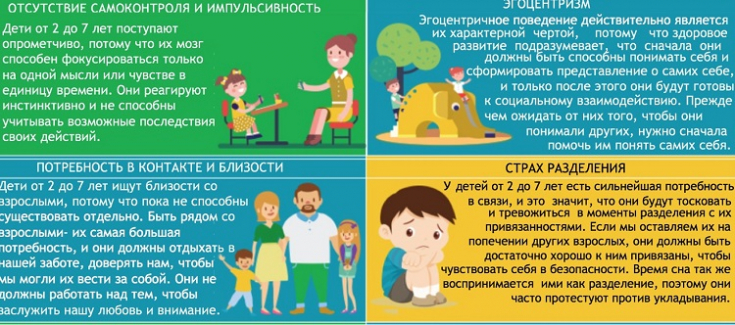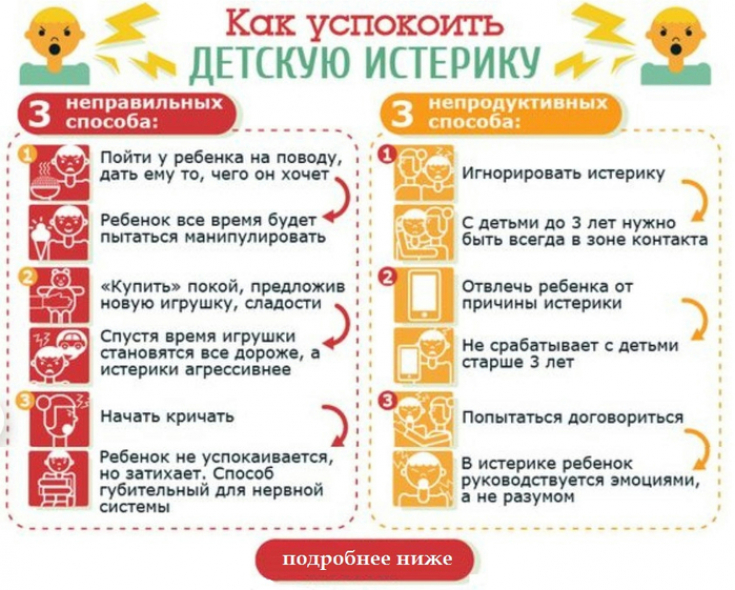Children's tantrums, which drive parents to despair, most often occur between the ages of 1 1 to 4 years. By their nature, they resemble a natural cataclysm that no one expected. This is a storm, a hurricane and a flood in one bottle. They can both destroy everything in their path, and suddenly stop. Adults experience no less vivid emotions than kids: anger, impotence, anger, disappointment. It it seems to them that only with useless parents a child can roll on the floor, bang his head and yell at the whole store.
Why do we need children's tantrums — 4 reasons
Most often, violent children's tantrums happen to children in preschool age. At this time, children are just learning to handle their feelings and emotions. Any situation that they cannot influence or put into words can cause a dramatic mood swing. All children go through this stage. But depending on temperament and developmental conditions, some babies are more prone to tantrums than others.
Psychologists emphasize that this phenomenon must be taken calmly and take into account that the emotional storms of the baby may affect his mental health in the future.

Read also: An only child in family: how to bring up
4 reasons not to consider child tantrums evil:
-
This is a way to freely express your emotions, relieve emotional and physical stress. Sometimes it helps the child to relax, go about their business and even sleep better.
-
If it is right to experience outbursts of children's emotions, then they help the child get rid of aggressionand it easier to make contact with adults.
-
Children most often throw tantrums at those they feel safe and trust . It's good if this person can endure these emotions and correct to respond to
-
Children learn to hear "no" and feel the boundaries of what is permitted.
It's over, children's tantrums do not cause parental joy. Too frequent and violent bursts can lead to physical injury, headaches and behavioral problems. Therefore, it is important not only to let the child express his indignation, but to help to cope with it.
«What to do if I don love my child»: 4 helpful tips for mothers
 Follow us on Telegram
Follow us on Telegram
How to calm a child during a tantrum:
Don't look for one universal way to deal with hysterics.
- A child can become hysterical for various reasons: fatigue, hunger, inability to cope with something, fear, resentment. In all these cases, your behavior will be different. Sometimes it will be enough just to hug and comfort, and sometimes it will be necessary to show firmness.
-
Don't think that a child's tantrum makes you a bad parent, and a child will hysteria to spite you. It's just such a period that it is important for a child to learn to survive. -
Set a clear boundary and stick to it. For example: "I understand that you're craving another chocolate bar. But first we need to have lunch. Your excerpt will be appropriate and will help the child learn to follow the rules. -
Show your sympathy for your child. Yes, he really wants to buy this car in the store, but another toy wasn included in your plans. Express to your child your understanding that he wants to buy it, as well as your sympathy that you cannot do it now. -
Don't forbid your child to express their feelings. Emotions need to be given an outlet so that they let go of the child. -
Don't tell your child that he is bad because he feels negative emotions. -
If the child does not react in any way to your words,
try to calmly go about your own business . Stay close, but keep a straight face. When the baby loses the audience and calms down, hug him without reproach and notations. -
Be careful of leaving your child alone during a tantrum. 1½-3 children may have violent emotional tantrums where they may hit their head and injure themselves injury. Toddlers are not yet able to handle such feelings on their own, so tantrums can drag on. In such cases, any method will do: a hug, a change of location, a distraction, the promise of a surprise. -
Try to keep your composure. Children mirror their parents' behavior. The more adults wind themselves up, the more intense and longer the tantrum can be. A calm parent shows that he cannot be manipulated. And here are screams, slaps, threats — this is a sign of weakness, not authority. -
Voice your child's feelings. Children have difficulty understanding and putting their feelings into words. Come to help say that he is angry, frightened, upset, offended, name the reasons for this, console give him time to reconcile the situation. -
Study your child's behavior. If you know that a place or event might trigger a tantrum, avoid it. When this is not possible, it is wise to prepare for the impending catastrophe and try to prevent it For example, take a spare shovel to the sandbox, a snack on the road, your favorite toy on the trip. -
Remember that the period of tantrums will pass, and the child will gradually learn to control himself and his behavior. Babies in a hysterical fit are also not sweet. They need a parent who will not let themselves be manipulated, but will comfort, support help them get through the storm.
3 peculiarities of the child's psyche, which parents should know about
You may be interested in: Memory Test.






Add a comment